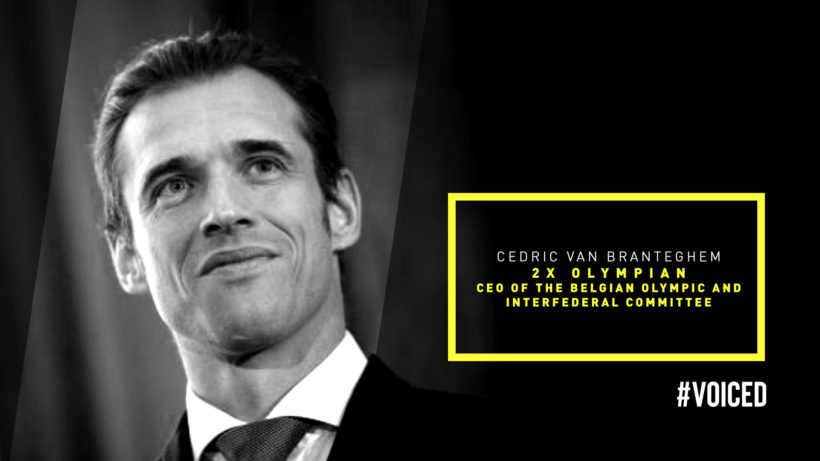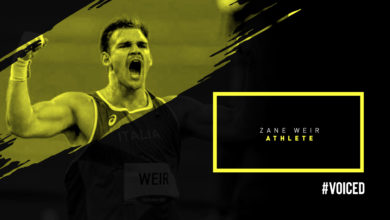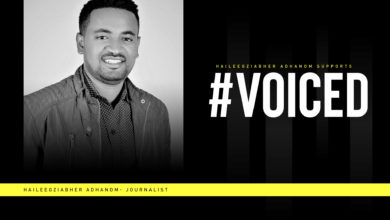Country: Belgium
Profession: CEO of the Belgian Olympic and Interfederal Committee (BOIC)
Career highlights:
- Meeting Director of the Memorial Van Damme (2017-2021)
- Former 400m athlete
- 2x Olympian
- European Championships bronze medallist
Congratulations on your appointment as CEO of the BOIC. For you, what makes the Olympic Games so special?
There is just a magic surrounding the Games!
Even though you may get the same athletes competing at the World Championships, when you watch them at the Olympics it is so much more special. The fact that there are connections with other athletes from different sports, other coaches and people from diverse backgrounds and cultures makes the Games bigger than any other event and all forms part of the magic. Many people only watch certain sports once every 4 years when the Olympics come around, but love seeing them all!
Also, seeing your national team perform at the Olympics brings a sense of pride and unites the citizens of a country. For the athletes, representing your country is really something that makes you so proud, and we know how powerful it can be. Belgium is a country with three different languages and three different governments, but at the Olympics we are all Team Belgium. Back in the day the Olympic Games played a pivotal role for unity in South Africa post-apartheid. That is the power of the Olympics.
What excites you most about the future of athletics?
The future brings new stars and that excites me. We all talk about the Carl Lewis era, Maurice Greene era, Usain Bolt era, but now we have new stars in different events: Mondo Duplantis, Karsten Warholm and Elaine Thompson-Herah as examples. There are also many new young stars rising and this makes it exciting for Paris 2024.
Athletics is huge in Europe, Africa and the US and right now we are moving in the right direction to bring the sport to the people here and in other areas. We have the World Championships in Eugene, Oregon this year, and I am convinced that soon we will have a world champs in Africa having spent some time working in Kenya and South Africa.
Many athletes battle when they transition out of sport, but you have gone on to have a very successful post-track life. What do you think has heled you to build a second career so successfully?
Start preparing during your athletic career. In hindsight this was beneficial for both my professional and athletic career. It might be difficult for a lot of young athletes because they might still be in school, but by your early 20s sport might be the only thing you have. It is important to start thinking about your post career, what your interests are and are there other things you would like to do.
As a young athlete you are privileged to meet a lot of influential people in business, sport administration and coaching. Connect with them and use that network as a steppingstone.
Keep studying and keep busy, training your mind will also improve your sport performance. Also remember you cannot do everything in one day, so pace yourself during the transition. I actually started working during the last 3 years of my athletic career which helped hugely with my own transition.
What was the most memorable moment during your time as the director of Memorial Van Damme Meeting Director?
There have been a few of course but the most memorable has to be the special edition in 2020 which was the 44th edition of the meeting. It was during the peak of the coronavirus and a lot of meetings were cancelled. We went ahead and organised the event in an empty stadium where we normally have 40000 spectators.
We did the one hour run world record attempts. Mo Farah broke the men’s world record and Sifan Hassan the women’s. In addition, Abdi Bashir broke the 20km world record and Peter Genyn broke the world record in the wheelchair 100m (T51). So, we had four world records in total. It was a very challenging year for everyone, but we managed to stage the event and that was magical.
When have you felt the most challenged?
As an athlete it would have to be the time I was injured. It was in 2006 at the European Championships in Gothenburg and I tore my hamstring. A year after that I had a difficult time getting into shape and I missed the 2007 World Championships in Osaka. I am a very positive guy by nature, but that was definitely tough. When this happens as an athlete you also have to deal with losing sponsors and finding ways to get income although you are not competing.
As a meeting director, it was in the weeks and months leading up to the 44th Memorial van Damme meeting. Covid was something nobody and anticipated or had ever experienced. The organising team had never had to organise an event under those circumstances; dealing with the government to get approvals, ensuring all athletes arrived safely and ensure all protocols. That is why it was such a big reward when the event happened and was a success.
If your house was burning what 3 things would you save? (other than people and pets!)
I am not very materialistic, but I love my beautiful bikes! I would take my bike, so I can still go cycling. I would try and grab my computer because it has all my work and pictures. Thankfully we now have everything in the cloud nowadays, so even if I am unable to save it I would still have access to everything. I also have some trophies in the living room, this includes my 2008 Sportsman of the Year Award and the bronze statue I received for my Lifetime Achievement Award. Those kinds of things are not replaceable. Although I still treasure and carry the memories with me, I would still like to have them when I move to a new house.
Did you have any superstitions when you were competing?
I used to, but I let go of them very earlier in my career.
My superstition was that I needed to always run with black socks. These were my lucky black socks, because in my very first year as a pro athlete in 2002 I qualified for the European Championships in them. In 2003 I qualified for the World Championships and met the Olympic standards wearing the same socks. But then I arrived at the World Champs in Paris, and I had forgotten my blacks socks! We tried to make plans for my parents to get them to the event, then I thought to myself, it’s not the socks that make me fast, I am fast and have been training very well. So, I ran the heats in white socks and was very nervous, but still qualified for the semis. After that I ran with all colour socks.


